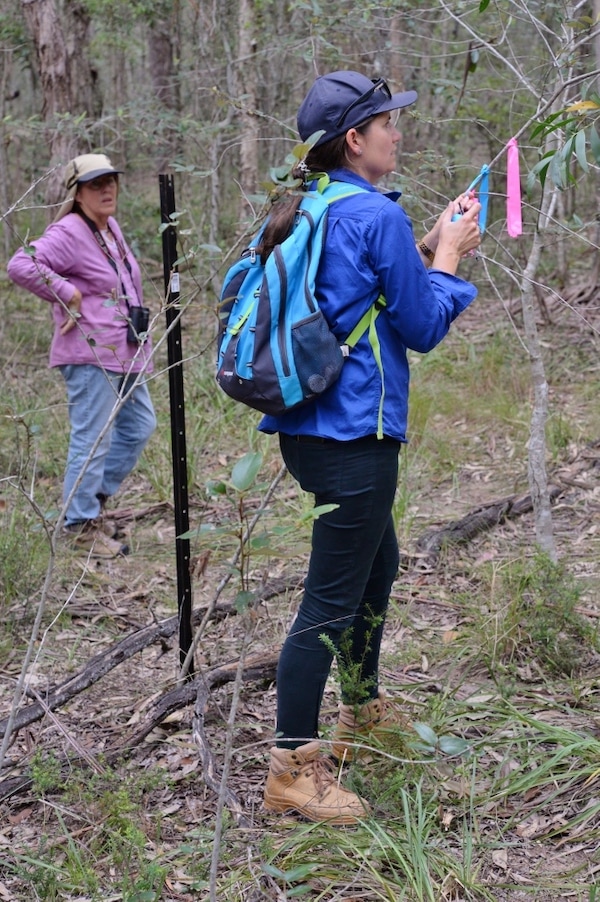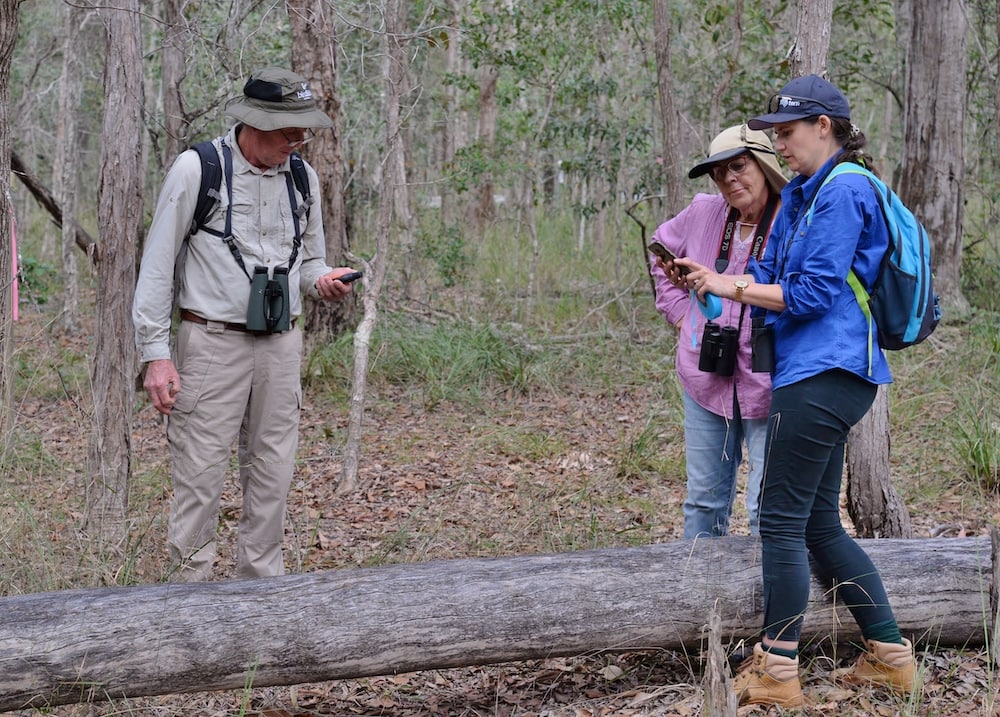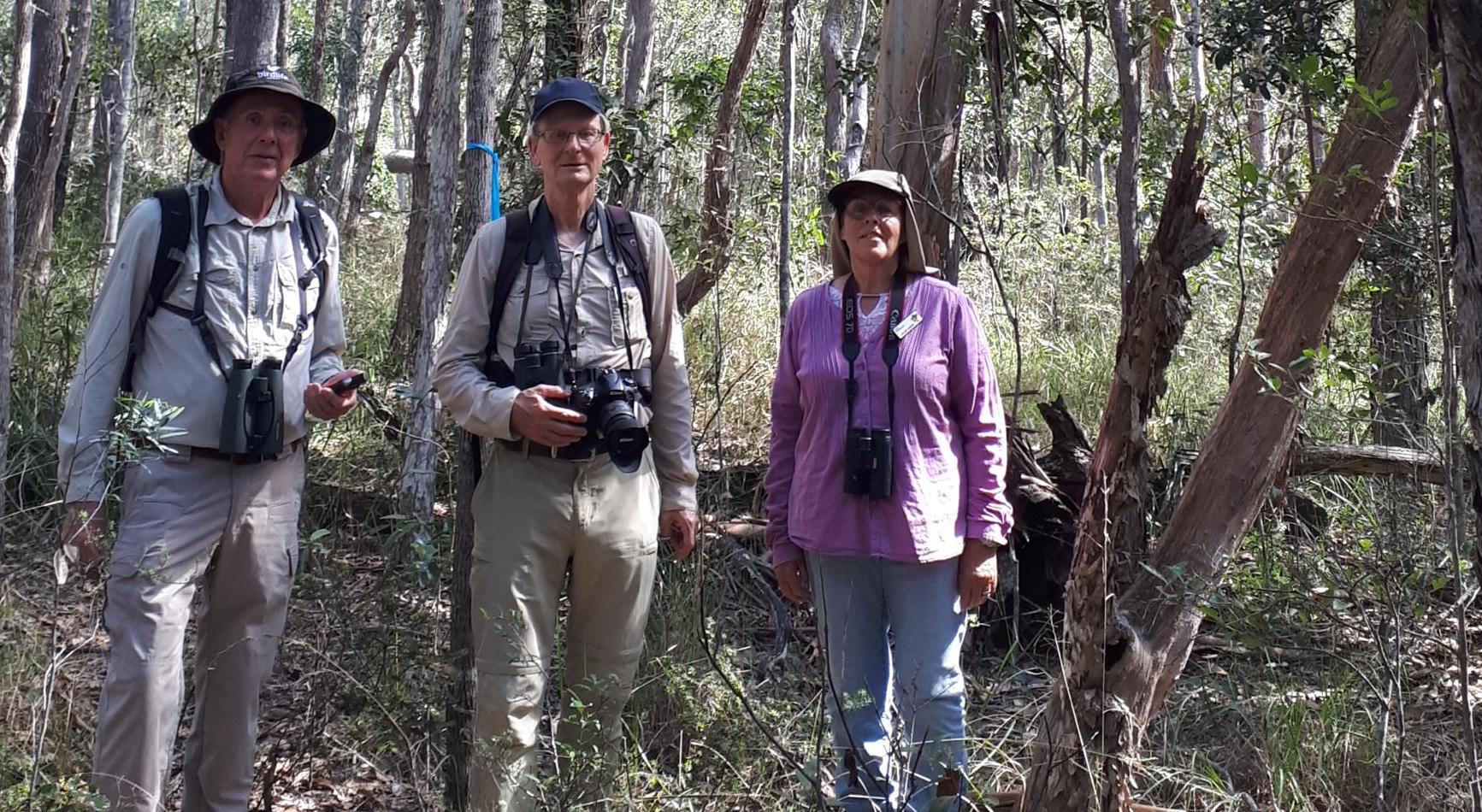A unique citizen science project involving the local community to collect biodiversity data has kicked off in Brisbane’s outskirts. The Queensland Government’s RICF-funded TERN pilot will trial the collection of consistent data at TERN sites by community members, with the potential to expand to our national network of plots to collect more data more often. Grab your binoculars and read on…
In June 2020, $1.66 million was provided to TERN as part of the Queensland Government’s $25 million Research Infrastructure Co-investment Fund (RICF). The investment is creating jobs, improving the discoverability, usability and management of ecosystem data, and allowing for upgrades to TERN’s critical land ecosystem observation equipment.
It has also enabled a promising collaboration between highly skilled birdwatchers and TERN’s ecologists. The aim of the pilot study is to work with experienced amateurs to consistently collect scientifically valid data over time and develop methods to enable some TERN sites to be monitored more frequently.
Community collaboration
TERN approached Peter Storer and the expert birdwatchers from the Samford Eco-Corridor – a community-based project working to re-establish local plant species for the benefit of people as well as wildlife – to collaborate on regular bird surveys at the nearby Queensland University of Technology’s Samford Ecological Research Facility (SERF) at Camp Mountain, which is the home of TERN’s Samford Peri-Urban SuperSite north-west of Brisbane.
“Our birdwatchers welcomed the chance to collaborate with TERN, which is such a highly regarded scientific organisation.”
Peter Storer, Samford Eco-Corridor
In late April 2021 the project became a reality when TERN’s Outreach Officer, Dr Katie Irvine, visited the SERF/Samford Peri-Urban SuperSite and met with Peter and other birdwatchers from the Eco-Corridor team. Plans to start the project in 2020 were hampered by COVID-19 restrictions.

TERN’s Outreach Officer, Dr Katie Irvine, (far right) with some of the expert birdwatchers from Eco-Corridor
Community training
While at SERF, Katie conducted training with the group, upskilling them in the TERN’s Fauna Monitoring Protocols (20-minute, 2-hectare method), which will be used to collect the bird data.
Katie and the group also confirmed the frequency of collection as quarterly and marked out the 2-hectare bird survey plots, which overlap with the site’s 1-hectare TERN Ecosystem Surveillance soil and vegetation plots and encompass the same dry sclerophyll woodland ecosystem. Katie and the group used GPS tracking to mark the plot boundaries and corners with coloured tape.
BirdLife Australia surveys elsewhere have shown that a paper-based data sheet with check boxes is a quick, reliable method to enter the data in the field, so this method will be employed initially. The birdwatchers will also investigate the use of the eBird and Birdata apps for field data entry.

TERN’s Dr Katie Irvine marking-out the 2-hectare bird survey plots (credit Peter Storer)
First survey complete
The birdwatchers carried out the first survey on 21 May and early results suggest around 19 different species at each location.
After validation, the data will be entered into the TERN database for open-access alongside a suite of soil, vegetation and air, water and energy exchange data collected at the same location.
“It’s exciting for TERN to be working with the community in trialling new methods of data collection.
Citizen science is a growing field and when well-resourced with training, support and technology, it is a fantastic avenue for community experts and enthusiasts to contribute to making scientific discoveries alongside established scientific organisations such as TERN.”
Dr Katie Irvine, TERN
- This pilot study has been made possible with funding from the Queensland Government’s $25 million Research Infrastructure Co-investment Fund, which complements the Australian Government’s National Collaborative Research Infrastructure Strategy (NCRIS).
- TERN plans to engage regularly with the community in this project so keep an eye on our via TERN’s Newsletter and social media accounts.
- QUT’s SERF is a 51-hectare property in the Samford Valley that provides a base for research, teaching and learning in a range of ecological, engineering, built environment and creative arts programs relating to biodiversity and conservation, urban development and agriculture. The property was generously bequeathed to QUT in 2009 by the estate of renowned Queensland entomologist Dr Elizabeth Nesta Marks AO.

Dr Katie Irvine from TERN (far right) and the Eco-Corridor birdwatchers used GPS tracking to mark the plot boundaries (credit Peter Storer)







